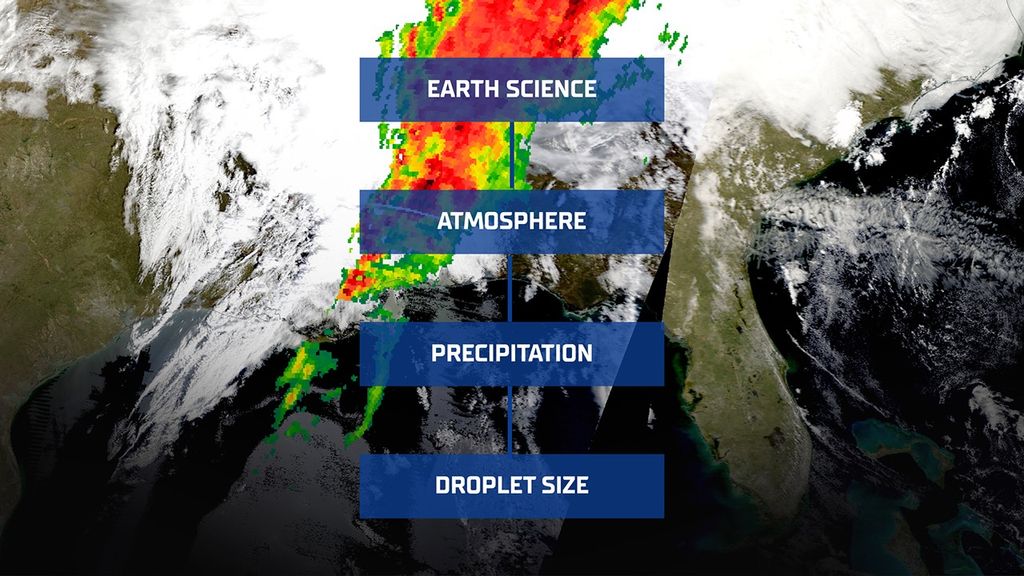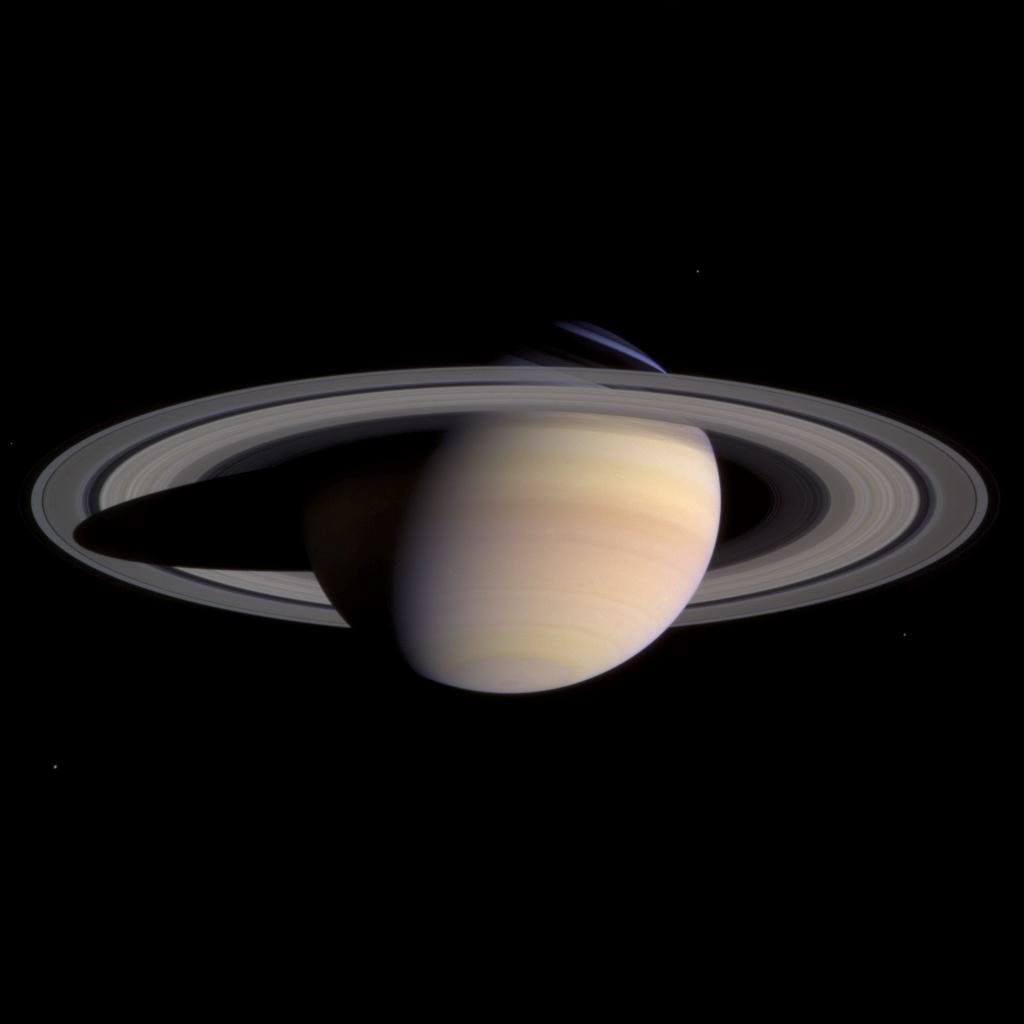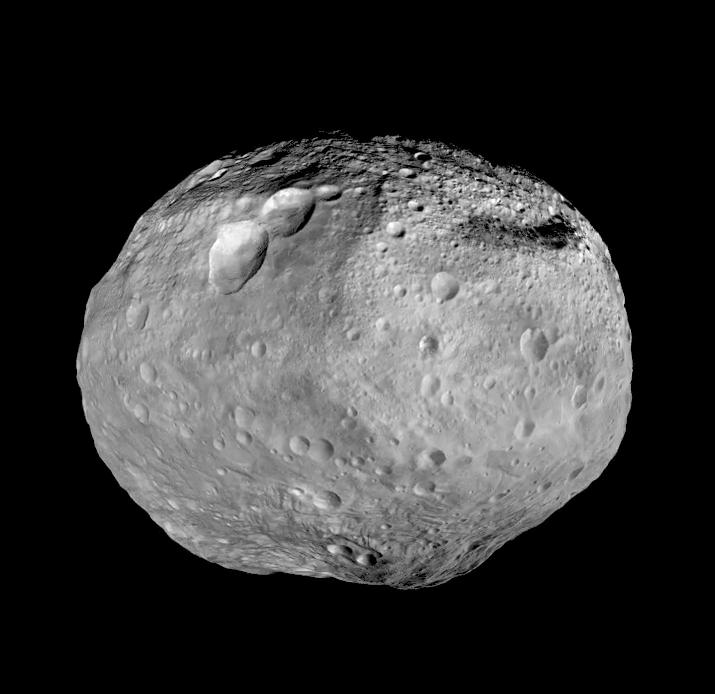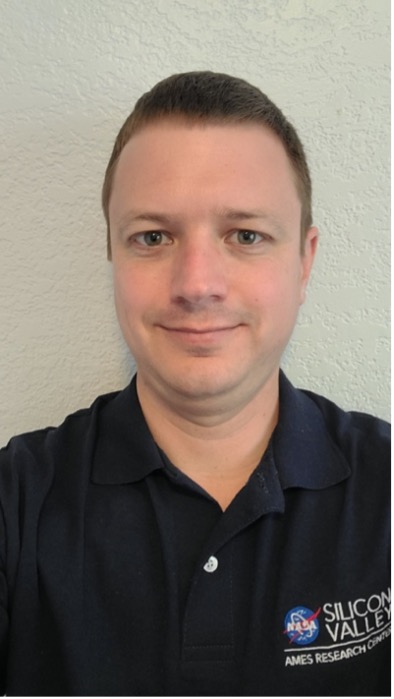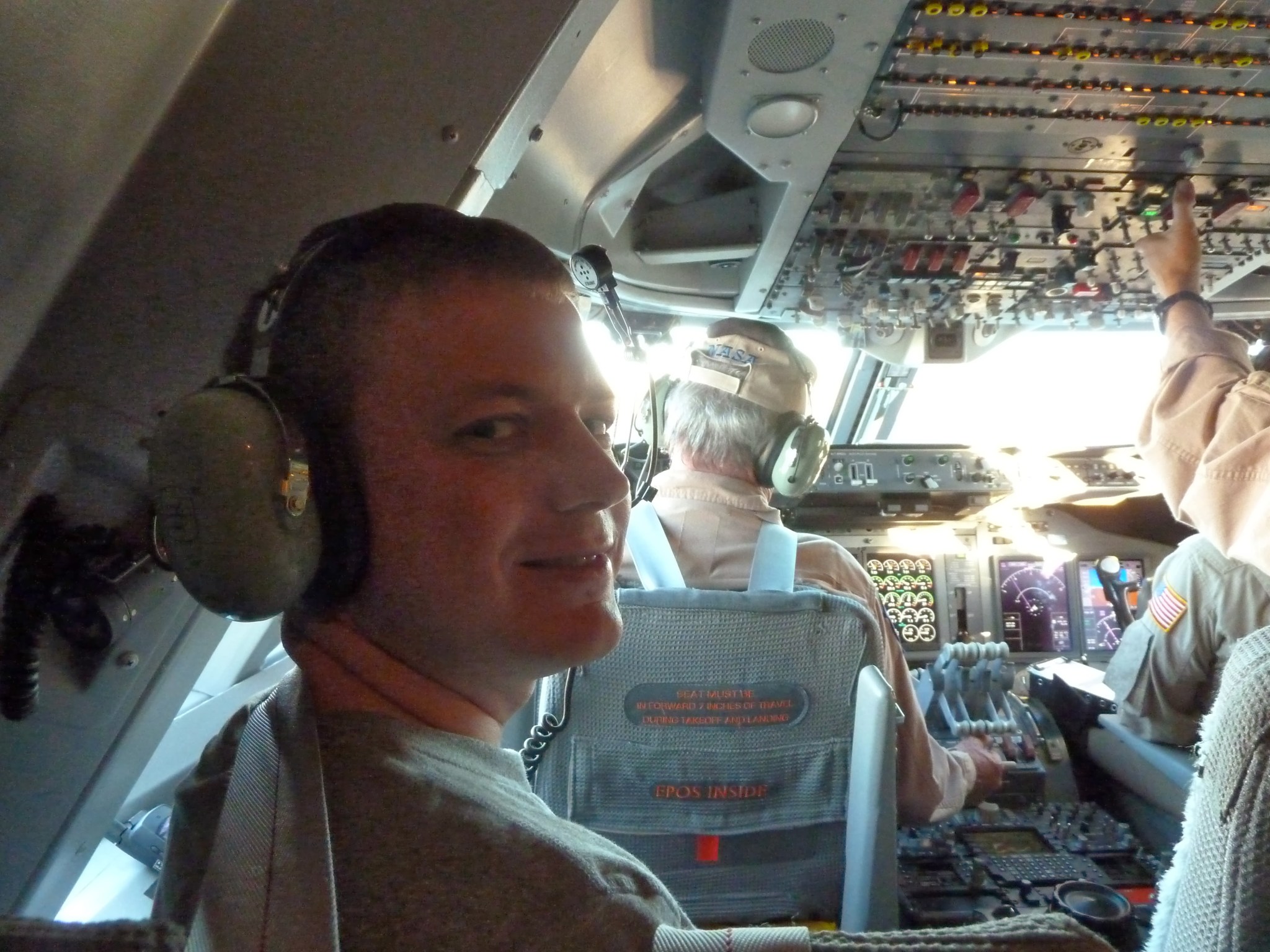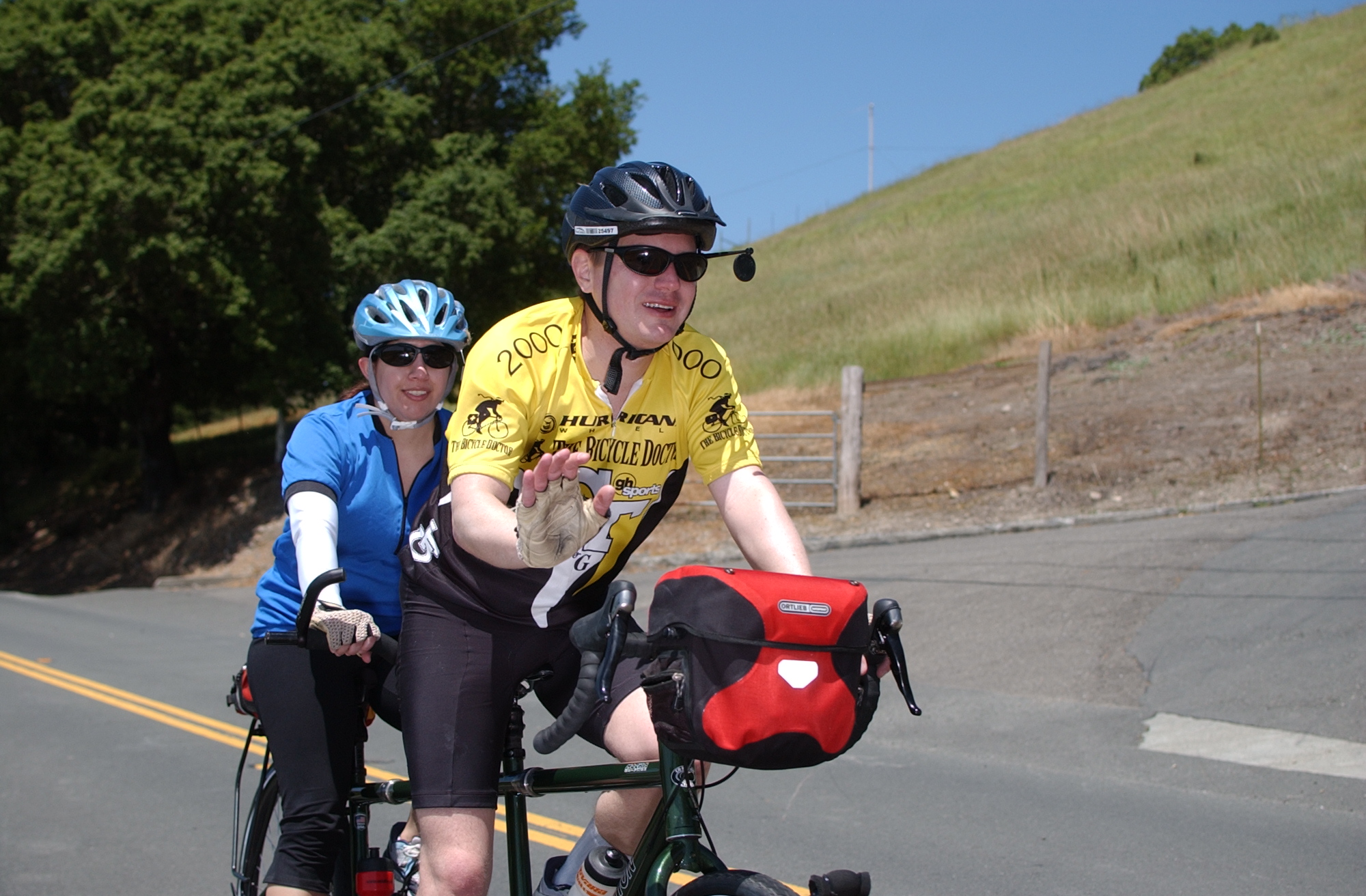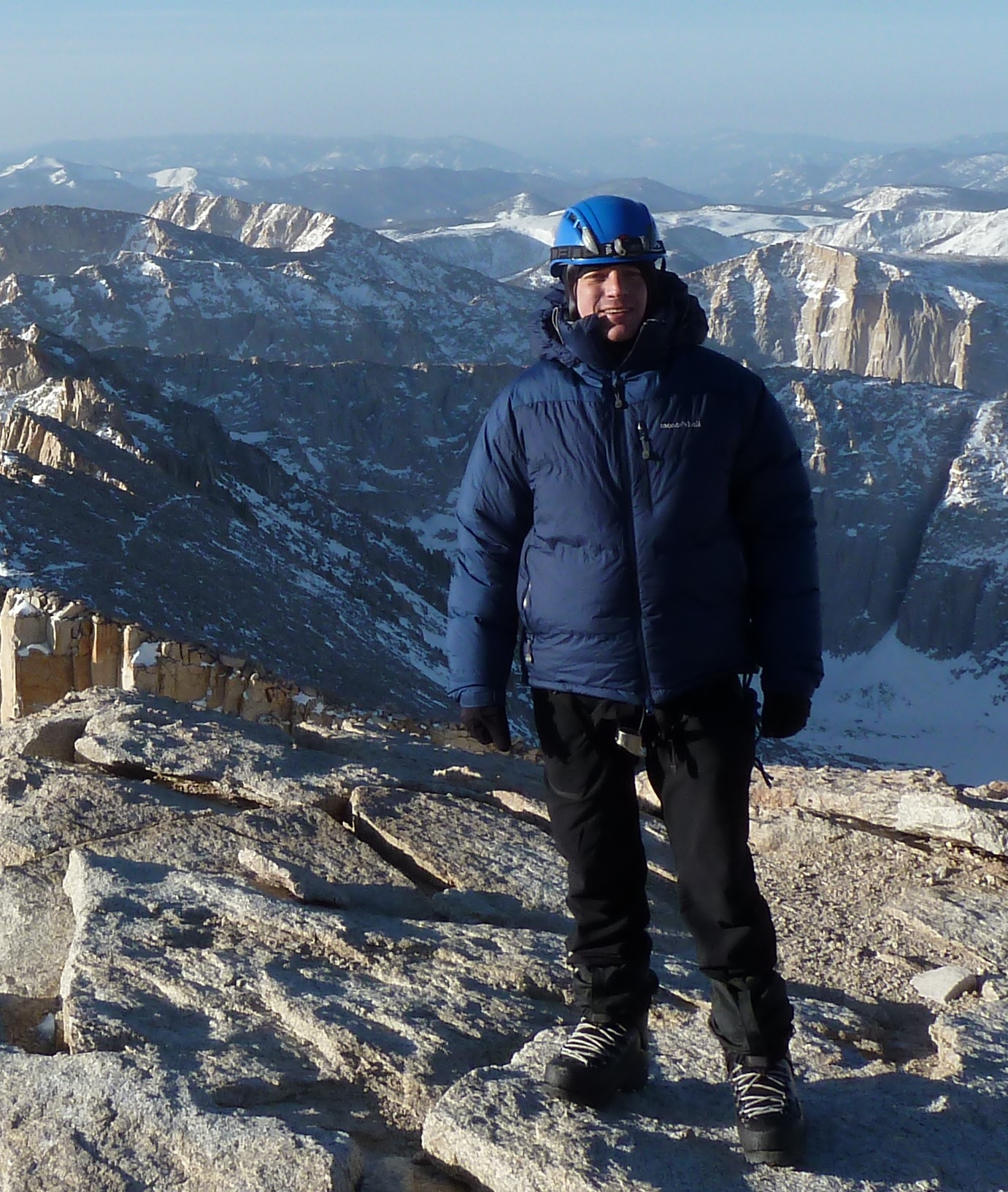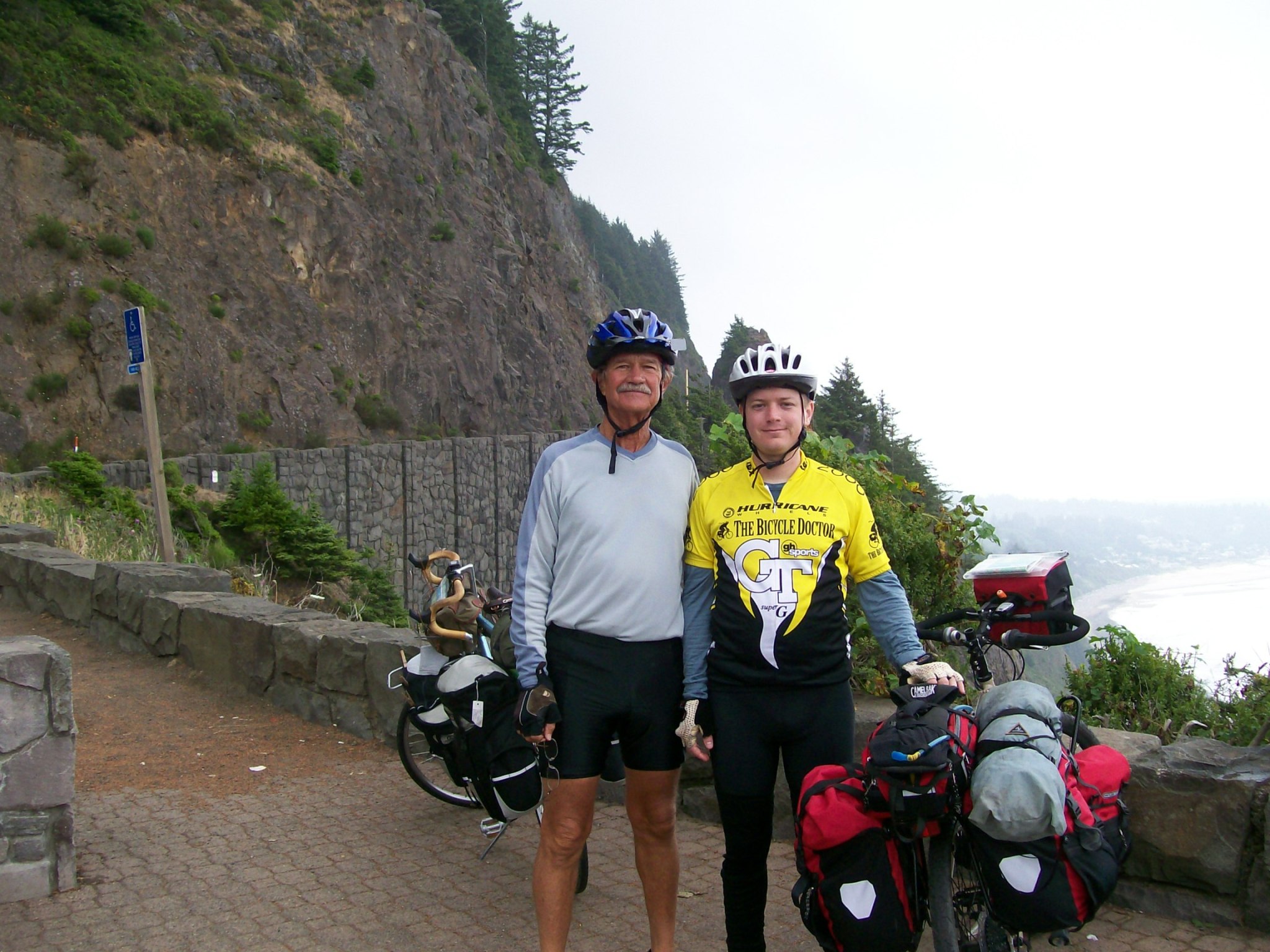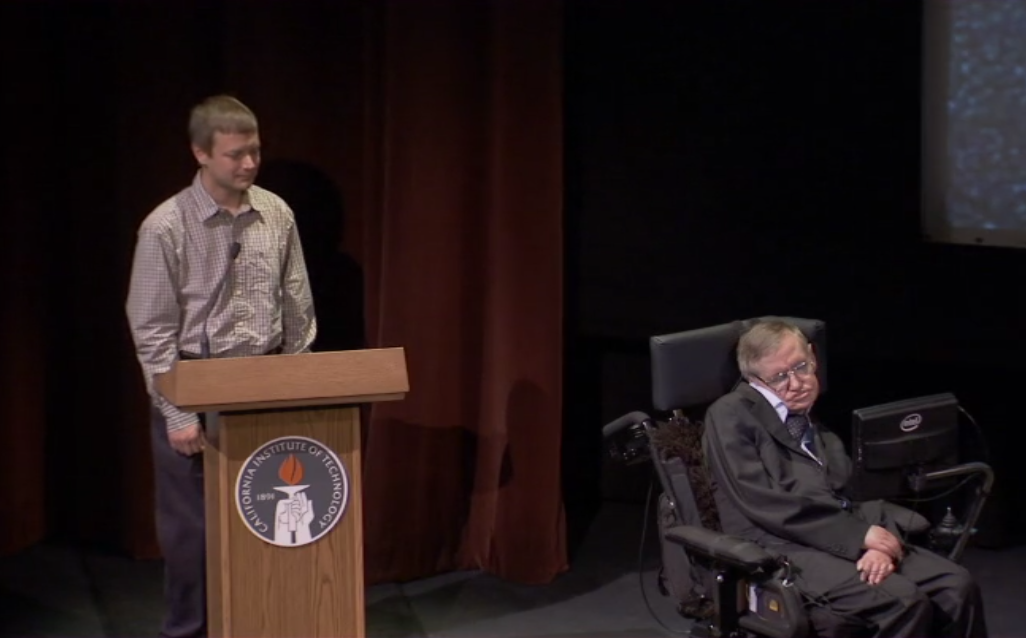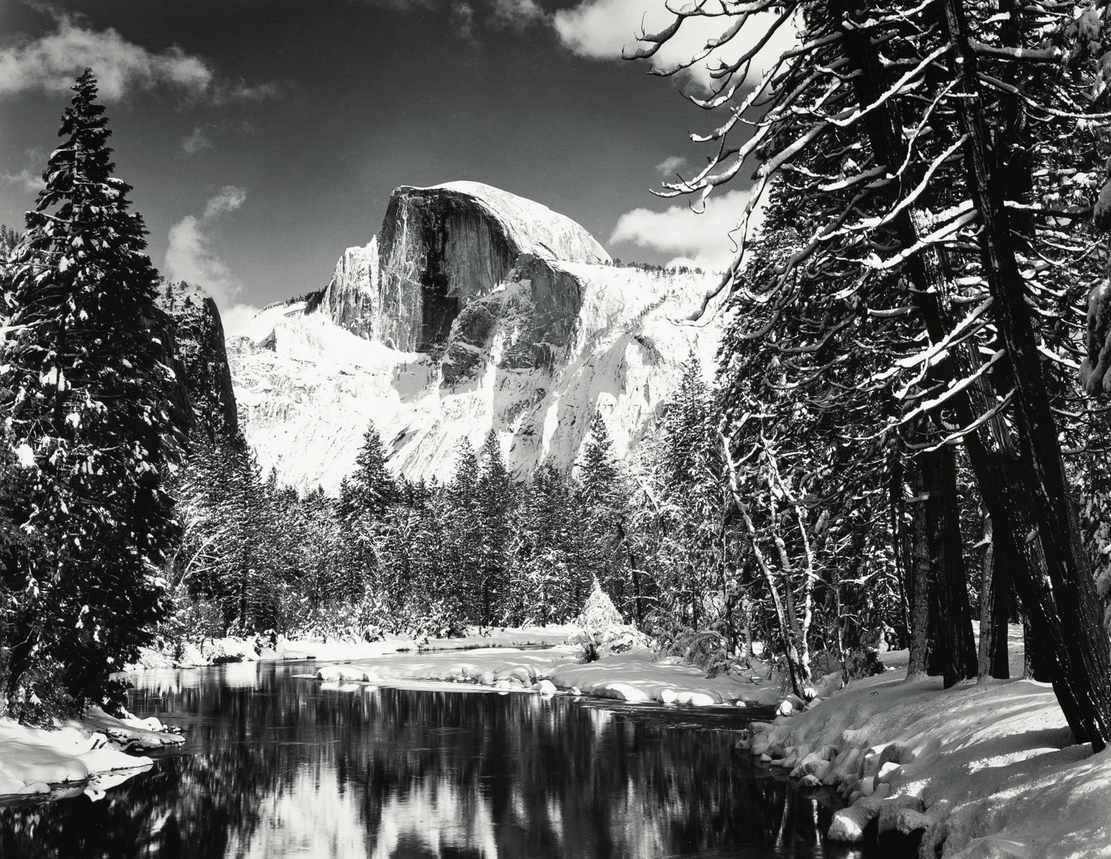We often start with what I generally can’t find when I look up profiles, and that is something about your childhood, where you were born and grew up, your family at the time, brothers and/or sisters, what your parents did, and especially if there was something at even that early age that might have oriented your thinking toward the career that you are pursuing?
I was born near Atlanta, Georgia. I grew up mostly as an only child, although I have an adopted brother and sister, who are both much older than me, 15 and 16 years older, so for all intents and purposes, I was an only child growing up. I was always interested in math. My parents put me in a private school, a Montessori school, where, I don’t know how familiar you are with it, but you get to kind of choose what you’re interested in. And, of course, I liked the math more, so I went that route. But I think what really captivated me, as a child in the late ‘80s, was when the last of the Voyager mission data came out, and I remember how cool it was to see the images of Neptune and all the discoveries that came out of the Voyager missions. I guess I’m one of the last of the children who were inspired by that. That really got me into astronomy. I started doing little school projects even as a fourth and fifth grader and learning as much as I could about the planets and astronomy in general. My dad had his own company in photogrammetry. He made maps from aerial photographs and although we never really talked about it, I guess it was sort of implied that I would eventually take over his company and be a civil engineer. But my parents were very supportive and never pushed that, or even really talk about it. They wanted me to pursue what I enjoyed, and they supported my interest in astronomy.
What was that big word again: photogrammetry?
Yes, Photogrammetry. He had his own airplane and back in those days they didn’t have satellites so he would take photographs from different angles and get a 3-D representation of the ground and he used that for surveying. One of his projects was to map the ground for a new Atlanta airport runway.
You could have become a U-2 pilot! (laughs). NASA Ames actually flew U-2’s for a number of years on mapping missions from 70,000+ feet. They were very interesting airplanes to watch land and takeoff.
Yeah, and there are U-2 aircraft housed in the same hanger as the SOFIA aircraft down in Palmdale.
Aha! Those are probably from Ames! So you had a somewhat natural affinity, through your dad, for technical kinds of work. Was your mom employed?
My mom was a dental hygienist but she quit shortly after I was born, to take care of me and never really returned, although she did some part-time work after that. And through high school, again, I focused mostly on the physical sciences. I went to Georgia Tech. It was really the only school I applied to but it was a nice fit. I majored in physics and fortunately, there was a single astronomer there, a professor, and we got to be friends pretty quickly. I think I was the only student really interested in astronomy there. He was nice and set up some undergraduate research for me. I got started with variable star research; he was an eclipsing binary expert, so I was sort of the slave labor for that. He gave me a printout of data but it wasn’t computerized, so I had to type it all in by hand, over months. But I got a little research paper out of it and that really sort of got me into his interest, which was variable stars, and that continued into grad school. I went to New Mexico State for that and had a unique thesis: I focused on pulsating stars in eclipsing binary systems, which are quite rare systems. I focused on how the companion star affects the pulsational modes of the variable star. And that was the beginning of how I got into more large-scale data-focused research. I got into classifying variable stars based on their light curve shape in large databases in grad school. So that was sort of the beginning of my slow shift away from actual science and more into engineering and data analysis, which was how I arrived at Ames. I was a postdoc at Caltech with the WISE mission, the Wide-field Infrared Survey Explorer. That was an interesting experience. I got to see the rocket launch of WISE, which was a memorable experience. I was involved mostly in the calibration of that mission, the detectors, anomalies, and a bunch of things that we didn’t know until after it was launched.
So, a couple of things: first of all, I resonated with your comment that you were influenced in the ‘80s somewhat by Voyager. You’re not the first of our researchers to say that. And you said that you began your work before computers came along so a lot of it had to be done in the old manual way. My career spanned from 1973 to 2015 and I went through the same metamorphosis, where we did things completely differently, and halfway through my career, I had to learn a new technology, the computers, and everything. I think it broadened me as a person to be able to perform my job both before and after computers. You mentioned also your postdoctoral fellowship at JPL/Caltech. I did look back and saw that you went there and I think it was the same Douglas Hoffman, I doubt there were two at the same time with NASA at Caltech, so did you have something to do with what that I found intriguing. because I had never heard of it before: metallic glass gears?
(Laughs) no that was not me! That’s a different person, and there continues to be confusion with this individual. I get his emails and it’s a funny story how they confused me with him. One time in my office at Caltech these workers rolled in with a cart of two bottles of argon gas and I said “What is this?” And they said, “This is your order!” So there has been continuing confusion with phone calls and emails for him. We had lunch together once, the Douglas Hofmann there at JPL, and I’ve gotten mail and packages for him, but, no, that’s a totally different person.
Well, thank you for clarifying that. I just assumed that it was you because you were there on a postdoc and you had mentioned that your focus gravitated toward engineering, which is what they were trying to do, to make smooth-running gears for robotics.
His name is spelled slightly differently, too.
I should’ve picked up on that, but I didn’t. Anyway, you have run through the pathway from a young child up through college and to a Ph.D., and then to interest in something that NASA was doing, so what was the path and connection between your schooling and NASA Ames? You went to NASA JPL on a postdoc. Was it a contact with someone or some particular type of science, or perhaps SOFIA, because that’s what you worked on at Ames?
Yeah, towards the end of my postdoc, the WISE mission was coming to a close and I was needing to move on, and I saw a job posting. They wanted a data analyst for SOFIA, more of a liaison between data analysis and astronomy, and I thought that was sort of a unique position because I did a lot of engineering work with WISE but they wanted a sort of dual purpose, half engineer, but who was fluent enough in the astronomy aspects to advise on the other side as well. So, I was fortunate to get that position as a contractor. And strangely enough, from the same class and advisor that I had at New Mexico State, I had a friend who already worked on SOFIA. We shared the same advisor and were there for three years together, so that was a nice re-unification if you will. My initial role with SOFIA was interesting, as I was sort of the Jack-of-all-trades. I was doing something different every day, and I really enjoyed it. One day I would be doing some sort of calculus derivation and the next day working on some focusing problem on the telescope. I don’t think I’m quite the definitive expert in anything but I learned to be almost an expert in multiple things and I found myself to be very valuable in that regard, that I could integrate things across multiple disciplines into one. The position I was hired for was more of a systems engineer, for which I had no formal education, but it turned out that I had the experience to be successful as that.
How long have you been Deputy Project Scientist on SOFIA?
It was only since this April (2021) that I took that position. I was a contractor for about seven years, then was brought on as a civil servant, as the Deputy Project Scientist.
I have a soft spot in my heart for SOFIA because I was actually on the project several times over the years when it was in development. I came up through the financial and resources management side and that was one of the projects for which I had the budgetary responsibility. I made a couple of trips down to Waco when it was being modified. I’ve been in the cockpit when it was up in San Francisco, during checkout and testing. But I’ve never flown on it. Have you flown on it? One of the questions we like to ask is what is a typical day like for you? Do you spend a fair amount of time flying on SOFIA?
In my initial few years, I flew quite often. I think I have about 25 flights under my belt. These days, I am lucky to get one or two flights a year. But it is quite the experience. If you are new, they give you the opportunity to fly in the cockpit for landing or takeoff, and I really liked that experience.
That would be so cool! You may be familiar with the very long, arduous, grueling, formative years of the SOFIA project, the zigzag path it took from conception to reality. It was killed several times and came back. And then just after it became an operational aircraft, NASA decided to move it from Ames down to Palmdale, so we don’t see it up here very often, which is unfortunate. It’s just a treasure of an asset and I hope that its life will continue, although I have heard talk that it’s coming to the end of its useful life, or is that just one more bump in the road for it?
It was designed for a 20-year lifetime and it started in 2013 so I guess the question is whether it should continue to operate and we have a big senior review next year to determine that. It is an expensive mission for sure, but it has a special place in the NASA arsenal of missions.
I’ve always thought that it’s just too good of an idea not to be preserved, saved, and utilized. Just to have a telescope of that capability that is mobile and can go where needed depending on the target.
And unlike a satellite, you can take it into the hanger and improve it, add a new instrument, or make modifications and updates to existing ones. It’s a great concept and delivers the benefit of a space mission with capabilities that can be upgraded on the ground.
One question we ask is what a typical day is like for you, although these days are not typical, given the pandemic situation. Do you divide your time between occasional flights on SOFIA and being at home or in the office, staring at a computer?
I haven’t flown on SOFIA since I took my civil servant Job, but normally, these days, I’ve been involved in the weather forecasting and post-flight processing of the water vapor data. SOFIA needs to determine how much water vapor was above the aircraft so we can take out of the spectra of our instruments. So, a lot of my time when we’re flying, I produce the forecasts of the water vapor and then after the flight, I run some code to analyze what the actual water vapor was. And a lot of times these days there are so many meetings that take up my time that it’s hard to have time to actually be productive! (laughs) It seems that meetings just multiply and multiply!
That kind of presages another of our questions which is: what do you enjoy best and least about your job?
Well, the best is that I get to do something different almost every day or every week. It seems there’s always a new problem or improvement that needs my attention, and it’s fun to tackle a new problem all the time. The worst is, well, the meetings and certain paperwork that needs to be done. But that’s unavoidable, I guess.
Do you want to tell us something, over the time that you’ve been with SOFIA, that would represent perhaps a major finding or discovery or some unexpected research result or something that it has produced, because ultimately what it produces will play a large role in deciding how long they want to continue paying for it.
Yeah, that’s been a little bit of a sticking point. We have had some major discoveries but perhaps not as many as we had hoped. One of the greatest discoveries we’ve had is finding the helium hydride molecule in space. It was previously only theorized to be detectable in nature, but SOFIA was the first observatory to actually detect it, and it is thought to be the first molecule that formed in the universe, so that was a major discovery that came out in 2019. And perhaps you’ve heard about the recent discovery of water on the sunlit portions of the moon, which was another recent campaign by SOFIA.
Yes. I did hear about that. But let me step back: you mentioned that the helium hydride molecule was the first molecule in the universe. Explain what that means.
It was the first molecule that formed in the early universe, but it had not yet been directly detected in the present.
Was it generated during the Big Bang or something like that?
Yes.
OK, that’s interesting.
The Big Bang was too hot for molecules to form, but right after that, as the universe cooled, it was the first molecule to actually form from the primordial hydrogen and helium.
Well, it sounds like you have found the perfect job for yourself in terms of your interests and schooling and so forth, but one of the questions we ask is: if you weren’t a research scientist or engineer for NASA, what would your dream job be?
Oh wow. I really like the outdoors, so I guess maybe I would be a park ranger or something like that. They get to spend a lot of time outdoors and hike around. I think that would be fine. It wouldn’t pay the bills very well but it would be a nice job to experience.
I always envied people who worked outside, as I sat in my office looking outside and knowing how enjoyable it appeared. Around here the weather is usually nice, but then I realized that they were also outdoors in the rain and cold and snow, too, and I probably wouldn’t like that so much! Anyway, you’re still young in your career and in your life but what advice would you give to a student perhaps, who sees what you are doing and would like to do something like that, and become what you are becoming?
I would tell them to just focus on what they enjoy but also have a broad educational background so that they are flexible. I majored in physics instead of astronomy just because I knew physics would give me a broader background, in case there happened to be something else I wanted to do. I pursued minors in earth and atmospheric science and math, just to give myself a broad base of education in several disciplines. I think that’s important. You might have an idea of what you want to do but it might not work out so if you have a broad background, you can be flexible and change things around as your career progresses.
That’s good advice. Do you want to share anything about your own family: wife, kids, pets, anything like that?
I met my wife when I was in Pasadena at Caltech. She’s a biology researcher, working with viruses and stem cell research. She worked at Stanford here briefly but now works at a private company, Eurofins. We’re happy, and like to do outdoor activities like backpacking. We do a lot of cycling too, we have a tandem bicycle. We call it a marriage counseling tool! It takes a lot of teamwork to ride a tandem bicycle. You really have to communicate because you’re peddling together and any kind of movement you make affects the other person, so it’s a real team exercise. I think we’ve certainly grown closer to doing that and understanding each other better. I mean, now we can communicate our thoughts through a little bit of pedal motion. We almost don’t even need to talk anymore. We can communicate through peddling!
What a metaphor for life in general and marriage in particular. I had never heard that before, but it makes sense. My son is actually a licensed marriage and family therapist. I’m going to mention this to him and ask if he’s ever tried tandem bicycle therapy for couples? (laughs) Do you have any pets by the way?
No, I grew up with dogs and I like them very much but we don’t have any right now. Perhaps we will in the future.
We get some very interesting answers to the question: what do you do for fun?
Well again, I like to go outdoors. When I was at Caltech there was an alpine club and I liked to climb peaks. We had an annual expedition to Mount Whitney, which is the highest mountain in the contiguous United States, and those were, well, I wouldn’t say it was fun at the time but after you’re done it feels like it was a lot of fun. It was probably some of the most grueling days I’ve ever had, and I considered it an accomplishment to climb Mount Whitney in the winter, with snowshoes and climbing gear. It was quite an accomplishment and I loved that.
So, did you get actually to the top?
Oh yes. I’ve been up there twice.
And that’s about 14,000 feet, I believe.
14,500, thereabouts.
Do you have to have supplemental oxygen?
No, it’s not that high, you don’t need oxygen until you are approaching Mount Everest in height. But you still need a day or two to acclimate. Above 10,000 feet you get some altitude effects. It was a crazy schedule where we spent two days getting to a base camp and the last day, we’d wake up at 3 am, climb up to the summit, rock climbing basically, and then repel down, pack up all our gear, walk all the way back to the cars, and drive home. That was probably the most exhausting day I’ve ever had! (laughs). You get home and say “I’m never doing that again!” But then a week later you say, “You know, it wasn’t that bad. It was actually kind of fun! I may do it again!”
Do you have any particular hobbies or talents or other interests? Art? Music? Reading? Sports? Anything like that?
I play the piano. I studied for about 10 years as a child. I wouldn’t say I’m that great, it takes me a year to work up a piece, but I do enjoy it. I like Beethoven, and play a lot of his music. I also got into brewing beer.
That’s a pretty good talent to have, too! Have you ever thought about what accomplishment in life you’re most proud of that’s not related to your professional work?
I guess I’m just proud of where I am. There’s a certain degree of luck in how I arrived, but I’m just happy to have a great wife and family and job, the surroundings, everything, it’s great really.
You already mentioned climbing Mount Whitney. That’s a heck of an accomplishment!
Yeah, yeah, I like that. I hope to aspire to be like my dad. He’s in his 80’s and is an avid bicyclist. He rides across the country, even in his 80’s, on a bicycle. I hope I have the energy and health to do that when I’m in my 80’s! I certainly hope that’s the case!
Wow, that’s impressive! Did he go all the way across the country?
Yeah. Just a few years ago he started from my house here, on a bicycle, and biked all the way back to Atlanta!
Wow! How long did that take him?
About two months I believe.
Did he go with a group?
No, he went alone that time. The first time he went with a random guy that he found on the Internet and they went from San Diego to Florida together. In between my grad school graduation and going to my postdoc, I took three weeks to do a bike ride with my dad and his same companion, and we went from Seattle to San Francisco. I really cherish that time, it was a fantastic ride, a beautiful ride down the coast.
This leads right into our next question which is: who or what inspires you?
I guess as a child I really looked up to Carl Sagan. He was definitely an inspiration, and I really enjoyed the ‘Cosmos’ TV series and books, but more recently I really like Stephen Hawking. Many people don’t know what a funny guy he was. He was really a jokester and just a fantastic individual. Despite his disabilities, he had a fantastic career, very inspiring.
Did you ever meet either one of them?
I had the great fortune to be selected to ask a question to Stephen Hawking when he was at Caltech for a lecture. I think the question was: “what should be the priority for astronomy?” And in his joking way, he said: “We have plenty of telescopes, we don’t need any more optical telescopes. We need gravitational wave detectors.” That was quite the experience, to stand on the same stage with him. That was great, and he will be missed.
We would like to include some pictures with this interview when it posts, something that exemplifies you and some of the things that you’ve talked about here today. So, if you have any of those, we invite you to provide them to Sara and in due time we can make a complete package of this. Do you have a favorite image that might be on the wall of your cubicle at work or office at work or even in your home that represents something meaningful and inspirational to you?
I like a lot of Ansel Adams photographs, of Yosemite and the mountains. I have plenty of Ansel Adams photographs all over my walls, particularly of Half Dome and El Capitan. I’ll look through some of my photos and send them to you.
Have you climbed either one of those?
No, unfortunately.
My daughter actually did the Half Dome climb and it terrifies me to think about that. I have acrophobia, and that just seems so incredibly dangerous. But you’re right, those are beautiful images and he did a superb job in making them available to people who would never go there, but would see them through his photography. We ask a similar question about if you have a favorite quote, one that you find inspirational and motivating. If one comes to mind right now that’s fine but you can also take your time and provide it later.
Stephen Hawking’s quote comes to mind: “Remember to look up at the stars and not down at your feet. Try to make sense of what you see and wonder about what makes the universe exist. Be curious. And however difficult life may seem, there is always something you can do and succeed at. It matters that you don’t just give up.”
That is marvelous advice. is there perhaps a question about you that we haven’t asked or touched on that you wished we had? Or that you would wish to convey to the broader reading public and your colleagues, that you would like them to know about you?
I can’t think of anything right off
Thank you. You’ve done a lot of things in your life so far, it’s very impressive.
We hear from people that they learn a lot about their colleagues that they didn’t know through this series and there are connections, things like you mentioned that you play the piano and I’ll bet a lot of your colleagues didn’t know that about you. And even if you play as a novice, someone else might identify with that and say, “I didn’t know that about him” and it gives you something in common to talk about. I think these have value for that reason, for sure. I didn’t ask a lot of questions because your general thematic path as you responded to our queries touched on most of the topics that we like to include. So, thank you for the work that you do, and good luck going forward. As I said, I love SOFIA and I hope it lasts longer than I do! It was nice meeting you and chatting with you.
Well, again thanks for doing this. It’s great to be able to read about our colleagues.
Interview conducted by Fred and Sara on 10/06/21 virtually.
Learn more about Doug Hoffman’s work here.













